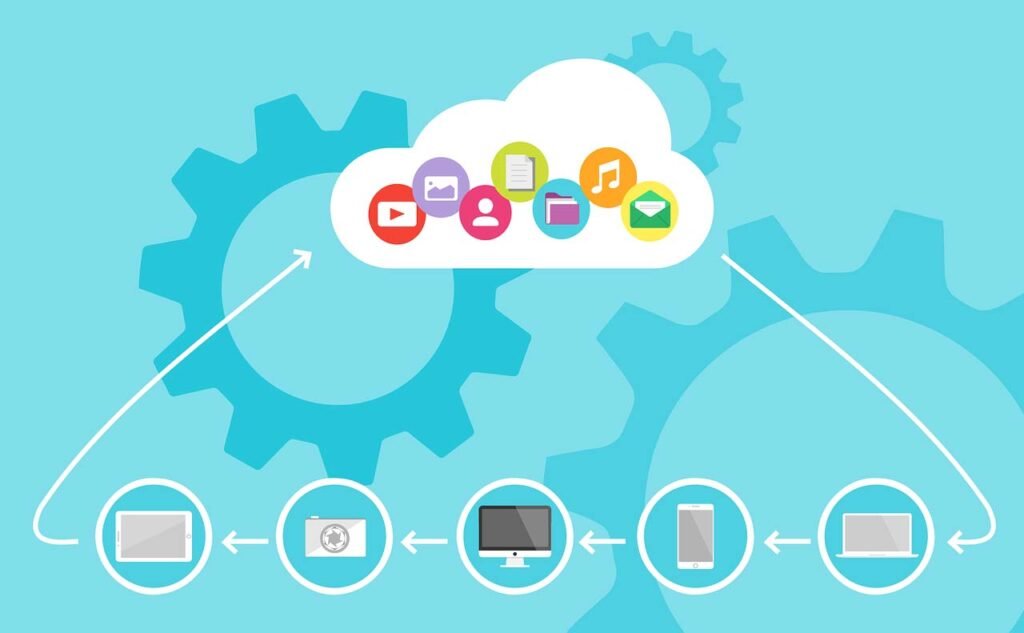Digital transformation for business is not optional anymore. It is a necessity for any business aiming to maintain a competitive advantage. According to the Deloitte survey, 85% of CMOs believe that their business has accelerated digital transformation since the outbreak of Coronavirus. In this article, we discuss the benefits of digital technologies for business growth. and what business process you can automate using automation.
Business Process Automation
A decade ago, business process automation (BPA) was the privilege of big-budget businesses. Today, it is available to companies of all shapes and sizes.
According to a global survey conducted by McKinsey, 66% of businesses are piloting solutions to automate at least one business area. Moreover, 31% of companies have fully automated at least one business operation.
Business process automation benefits your business in multiple ways. It increases standardization, improves employee performance, and boosts customer satisfaction.
You can use automation in almost any business field. The imperative business areas you should automate are:
- Marketing
- Inventory management and warehousing
- Human resources
- Employee onboarding
- Purchase orders
- Invoice processing
- Sales and customer relationship management
Omnichannel Customer Service
In 2021, the quality of customer service can make or break your business. According to Microsoft, 54% of all customers say they have higher customer support expectations than they did a year ago.
Keep in mind that negative word of mouth spreads like wildfire. It impacts customer perceptions of your brand and affects your sales.
In the era of digital technologies, you can deliver omnichannel customer service and address customer questions at every touchpoint.
For starters, assess your customer service channels and focus on those your customers use. For example, you can diversify customer support via call centres, email service, live chat, and social media support.
If you are running a global business and attracting customers across different time zones, consider outsourcing customer service. For example, 24-hour call answering service representatives will respond to your calls in real-time, even during the weekend and holidays.
With the rise of mobile technologies and artificial intelligence, many consumers rely on self-service. Businesses can create comprehensive knowledge bases on their websites, as well as invest in AI chatbots.
Greater Personalization
Customers' experiences determine whether they will purchase from you and come back. One way to increase their satisfaction is user experience personalization.
For starters, keep collecting and analyzing customer data. That way, you can deliver relevant product recommendations and content via your website, email newsletters, or paid advertising campaigns.
Email marketing segmentation is a perfect example of personalized user experiences. Instead of sending a uniform newsletter to everyone on your list, you tailor it based on customer data. The goal is to collect customers' demographic and psychographic data. You can break your list down based on customer interests, past purchases, location, etc.
Another example of personalization is the use of artificial intelligence and virtual reality. Many brands are creating VR platforms to deliver seamless online purchasing experiences. Customers can virtually try their products and make informed buying decisions.
Cloud Computing Increases Workplace Productivity
Cloud computing is rising at an astounding pace. According to a 2020 research study, 95% of all workloads will be in the cloud within the next five years.
With the rise of SaaS solutions, businesses do not need to invest in on-premise data centres and expensive hardware and software. SaaS technologies are far more flexible. You can scale them up or down, based on your current business needs.
You can use SaaS applications for almost every aspect of your business, from accounting to CRM. These tools comply with the highest data security regulations, ensuring employee and customer data are safe.
Let's take the example of project management. Project managers and team leads can simplify project planning. They can assign tasks, create new projects, set deadlines, and monitor the time spent on tasks. That way, they communicate with employees more effectively and track their performance in real-time.
Employees receive real-time alerts when they are added to a project or when a task is assigned to them. They can track their responsibilities via visually appealing calendars and manage their time more effectively.
Most importantly, they can communicate in real-time and share data in a centralized and secure digital environment.
Over to You
These are just some of the numerous examples of how digital technologies accelerate business success. With these technologies, you can streamline manual business tasks and let employees focus on operations that require creativity and critical thinking.
By digital transformation for your business, you enhance customer experience, boost sales and inspire customer loyalty
I hope these insights will help!


No comments:
Post a Comment
Note: Only a member of this blog may post a comment.